10 Things You Can Do Right Now To Improve Your Search Ranking
Improve your search ranking with these 10 easy tips! Learn how to optimize your website and increase your visibility on search engines today.
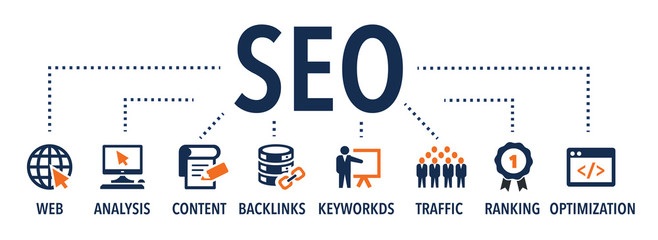
With the increasing spread of the Internet, the importance of search engine optimization continues to grow. Almost all webmasters, marketers, and business owners are looking for ways to improve their website's reputation and achieve better search engine rankings.
This quest for better results, known as search engine positioning, can be achieved by following some basic techniques.
Introduction
Yes, we know that search engine optimization is crucial for ranking well in search engines, but what exactly does that mean? And how can you improve your website SEO?
Let us start with the basics: SEO is short for Search Engine Optimization. Search engine optimization is about improving the visibility and ranking of a website or web page in the search engine results pages (SERPs).
In other words, it's about making sure your website shows up as high as possible when people search for keywords related to your business.
So how can you ensure that your business appears on the first page of the search engine results pages (SERPs)?
Here is a list of 10 things you can do right now!
1. Make sure your design is search engine friendly
The design of your website is critical for two reasons. The first reason is that it needs to be appealing to your visitors.
After all, you want them to stay on your site and interact with it.
However, the second and often more essential reason is that your design needs to be search engine friendly. This means that your website must be easy for search engines to crawl and index. If it is not, your website will probably never appear high in the search results.
So how can you make sure your website design is search engine friendly? There are a few vital things you should keep in mind:
-
Your website needs to be well-linked and easy to navigate.
-
Your website needs to have a lot of quality content.
-
Use header tags to structure your content.
-
Use a clean and well-organized code.
Maximize Your Online Presence with Our Digital Marketing Agency
-
SEO: Unlock more SEO traffic and see real results with our expert optimization services.
-
Content marketing: Attract and retain customers with high-quality, engaging content that drives traffic and generates leads.
-
Social media marketing: Our team creates epic content that will get shared, get links, and attract traffic on social media platforms.
-
Google Ads: Effective paid strategies with clear ROI. Let our team help you get the most out of your ad spend.
-
Email marketing: Connect with your audience and drive conversions with targeted email campaigns.
-
Web design and development: A visually appealing and user-friendly website is key to attracting and retaining visitors. Our team can help you create a website that converts.
2. Make your website easy to crawl
If you want your website to rank higher in the search engine results pages (SERPs), you need to make sure that it can be easily crawled and indexed by search engine spiders. Spiders are the software programs that search engines use to crawl the web and gather information about websites.
There are a few simple things you can do to make your website easy to crawl:
-
Make sure your website is well organized and has a logical structure.
-
Use keyword-rich titles and descriptions for your pages.
-
Make sure your website is error-free.
-
Ensure that you have not prevented robots.txt from crawling your website.
-
Create a sitemap.
-
Create clean, well-structured URLs.
3. Submit a sitemap to search engines every time you make changes to your website
Whenever you make a change to your website, you should submit a sitemap to the major search engines. This will ensure that your changes show up in search results promptly.
Submitting a sitemap is a simple process. First, you need to create a sitemap file. This is an XML file that lists all the pages on your site, as well as any other information that search engines might need for each page.
Once you have created your sitemap file, you need to submit it to the major search engines. You can do this manually or use a tool like Google Search Console or Bing Webmaster Tools to automate the process.
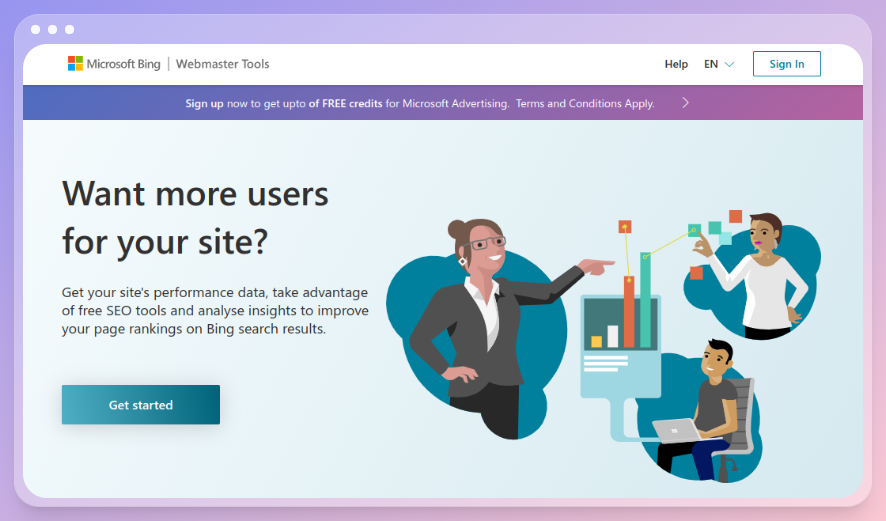
Once you submit your sitemap, the search engines will crawl your site and update their index with your new content.
It is important to keep your sitemap up to date so that search engines can index your website properly. When you make a change to your website, you should submit the revised sitemap to all major search engines. This will ensure that your website is properly indexed and ranked by search engines.
If you want to wait, Google will eventually crawl your website. However, this may take some time. You can achieve faster inclusion if you use Google Search Console and submit your sitemap manually.
3. Have Google Search Console and Google Analytics set up
There are many things you can do to improve your website's search ranking. However, two of the most important things to do are to set up Google Search Console and Google Analytics.
Google Search Console is a free tool that allows you to track your website's visibility on Google. It also helps you fix errors that could prevent your website from appearing in search results. Besides, it lets you submit your website to Google for indexing and get data about your website's search traffic and performance.
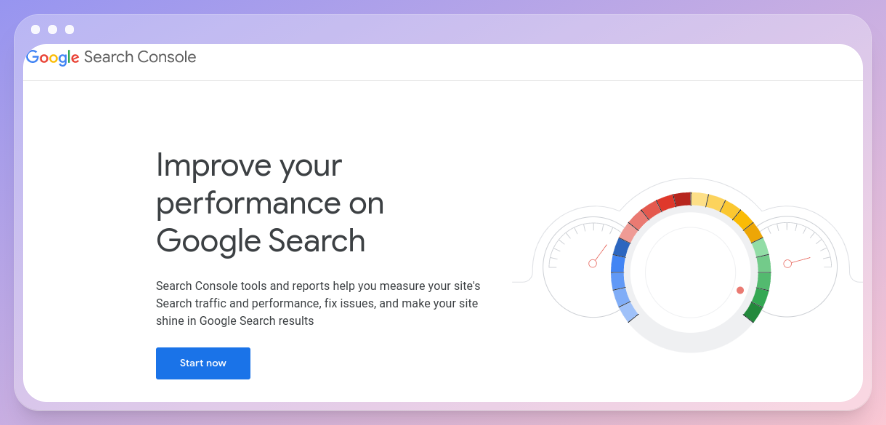
Google Analytics is a free service that provides detailed statistics about your website's traffic and visitors. It lets you track where your visitors come from, what they do on your website, and how they interact with your content.
Google Search Console and Google Analytics are two essential tools for any website owner who wants to rank better in search engines and get more visitors. If you don't have these tools set up.
Read 11 Free SEO Tools To Improve Your Website’s Search Engine Ranking
4. Get listed in more search engines
There are many different search engines, and each has its algorithm for ranking websites. However, there are a few basic things you can do to improve your website's ranking on all search engines.
One of the most important things you can do is to get listed in as many search engines as possible. This way, your website will have a greater chance of appearing in the top results for a given search.
There are several ways to get listed in a search engine. The most common is to submit your website URL directly to the search engine. This can be done manually or through an automatic submission process.
Another option is to include your website's URL in another website that is already indexed. This is called a backlink and can be a great way to improve your search ranking.
Lastly, you can pay to have your website URL included in a search engine's database. This is called paid inclusion.
5. Get listed in more online directories
A correct and up-to-date listing in online directories is essential if you want to improve your search ranking and be found by more potential customers. To get listed in as many online directories as possible, submit your website to the most important directories in your industry first.
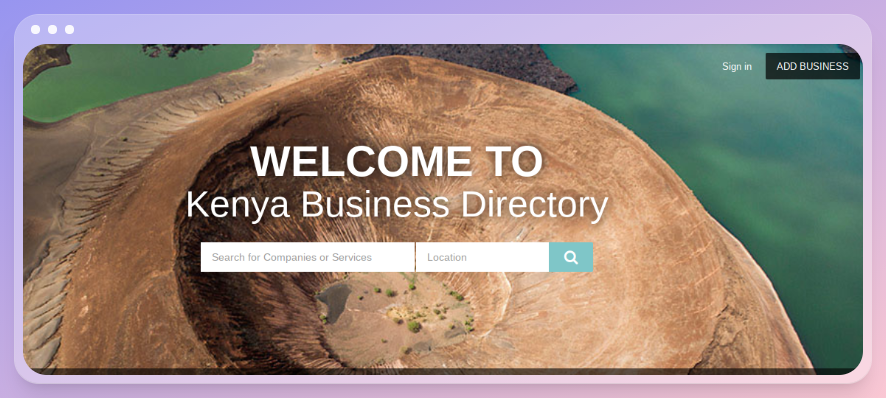
These directories probably have the most authority and are therefore the most valuable when it comes to improving your search ranking. Some directories in Kenya are:
In addition to submitting to industry-specific directories, you should also consider submitting to general directories such as the DMOZ directory.
DMOZ is one of the most respected directories on the Internet and will help your website rank better in search results.
Do not forget to check your website's listing in these directories regularly to ensure that your website remains listed. Some directories require you to submit new listings regularly to remain listed.
6. Make the file names of your pages descriptive and keyword-rich
Most website owners and bloggers know that they should name their pages and blog posts with descriptive keywords that include their target keywords.
However, many don't realize that they should also include these keywords in the file names of their pages. The reason for this is that your file names are one of the ways that search engines determine what your website is about.
Creating file names that are keyword rich and descriptive can help you improve your organic search ranking for those keywords. You can also help your visitors remember the name of your page or post, which increases the likelihood that they'll visit the site again in the future.
Here are some tips to help you choose the right file names for your website:
-
Use keywords that accurately describe the content of your page.
-
Avoid stopping words like "and" or "the."
-
Keep your file names short.
-
Use hyphens to separate words
If you name your page new_page_1.html, you're giving away an opportunity to do SEO. Use names that describe the content and let the keywords flow.
7. Check your title tags
Another important measure to improve the search ranking of your website is to optimize your title tags.
Title tags appear on search engine results pages (SERPs) as a clickable heading for a specific result and are important for usability, search engine optimization, and social sharing. A good title tag should be descriptive, concise, and contain relevant keywords for the page.
To optimize your title tags, make sure they are descriptive and contain relevant keywords. However, be careful not to pack too many keywords into your tags, as this can hurt your rankings.
Keep your tags short and sweet, and you'll be well on your way to better search engine visibility.
8. Check your images Alt tags
It's no secret that images are an important part of any website. They can help break up the text, add visual interest, and give your site a professional look. But did you know that images can also help you rank higher in search engine results?
That's right - by adding keywords to the ALT tags of your images, you can help your website rank for those keywords.
When you add an image to your website, be sure to add an "alt" tag that describes the image. These tags are read by search engines and can help your website appear higher in the results for relevant searches.
So if you're trying to rank for a specific keyword or phrase, be sure to include it in the tags of your image ALT. This is an easy way to give your website a boost in search engine results.
9. Focus on long-tail keywords
Your website's search ranking is determined by many factors, including the quality and quantity of your content, the age and authority of your website, and the number of inbound links to your website. However, one of the most important ranking factors is the keywords you use on your website.
One of the best ways to improve your website's search engine results position is to focus on long-tail keywords. Long-tail keywords are specific and descriptive phrases that are less competitive than short-tail keywords.
For example, a short-tail keyword like "web design" would be much more competitive than a long-tail keyword like "responsive web design".
Long-tail keywords are specific, niche keywords that are less competitive and also more likely to be used by people who are ready to buy, which makes them excellent keywords.
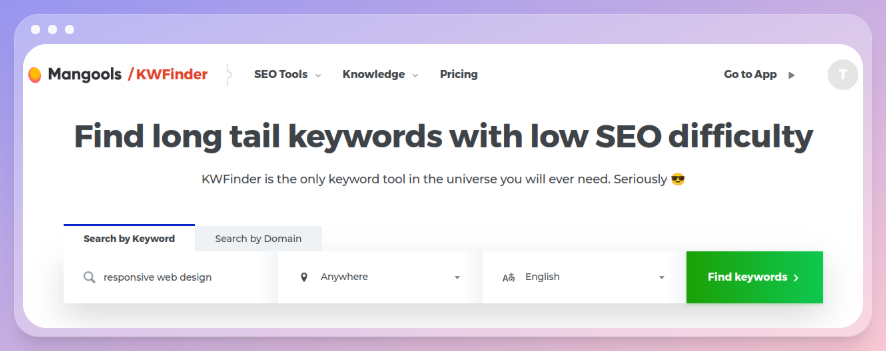
If you are not sure how to find long-tail keywords, there are several keyword research tools you can use, such as Mangools Keyword Finder, Google Keyword Planner, and Moz's Keyword Explorer.
10. Increase the quantity and quality of inbound links
The quality of a website's content is still the most important ranking factor for Google, but inbound links are a close second. To improve your search ranking, you need to focus on increasing the quantity and quality of inbound links to your website.
The more inbound links you have, the better your website will rank in the search engine results pages (SERPs).
But how can you do that?
Here are a few tips:
-
Create great content that other people will want to link to.
-
Ask other websites to link to your content.
-
Submit your website to directories and other online resources.
-
Participate in social media and other online activities that generate links.
Bonus 1
Set up Google Profile
If you're a business owner, you've probably heard of Google My Profile (formerly known as Google My Business).
Google Profile is a free service that allows businesses to manage their online presence in Google Search and Google Maps. By registering and verifying your business with Google, you can help customers find you more easily online. This, in turn, can help you attract more customers and grow your business.
If you're not already on Google Profile, now is the time to set it up.
Here's a quick guide on how to get started.
First, go to google.com/business and click "Start Now." Then sign in with your Google account or create a new account. Once you're logged in, you'll be prompted to enter your business name, address, and phone number. After entering this information, follow the instructions to create your listing.
Google Profile is a great way to improve your search ranking and make your business visible to more potential customers. By creating a business listing on Google, you can ensure that your business is more visible in search results when someone searches Google for your business's products or services.
Also, customers can easily find your contact information, hours of operation, and even directions to your business once your listing is live.
Bonus 2
Increase your website loading speed
Users today expect fast-loading websites, and Google has stated that page speed is a ranking factor in its search algorithm. This means that if your website takes too long to load, you could lose potential traffic and customers.
If you want to improve your website's search ranking, you need to make sure that your page loading speed is optimal. In today's competitive market, a fast website is a must if you want to rank well in search results.
There are many ways to improve your page load speed:
-
Optimize your images
-
Reduce the size of your HTML and CSS files
-
Using a Content Delivery Network (CDN).
Conclusion
There are some things you can do to improve your search ranking. If you don't have the expertise or time to tackle these things yourself, you should enlist the help of professionals who can help you improve your website's search engine performance.
Hire our SEO Agency. Get a free quote
By implementing the suggestions we've discussed in this article, your search engine optimization efforts can yield positive results. Since the world of search engines is constantly evolving, it's important to keep up with the latest techniques and requirements for improving search engine results.
Once you've followed these suggestions, give the search engines time to re-index your site. In the Internet age, we're after instant results. However, it takes time for all your search engine optimization techniques to take effect.
Whether you rely on professionals or take on the work yourself, these tips can be a good starting point.
Fifteen minutes every few days will make a big difference when it comes to improving your rank. Continue to focus on SEO. If you do, you'll find yourself at the top of the rankings!
Good luck!

Strategist Profile
Abala Tom
Digital systems strategist specializing in high-performance SEO, Google Ads, and conversion optimization. Mission: to replace marketing 'guesswork' with predictable revenue systems.